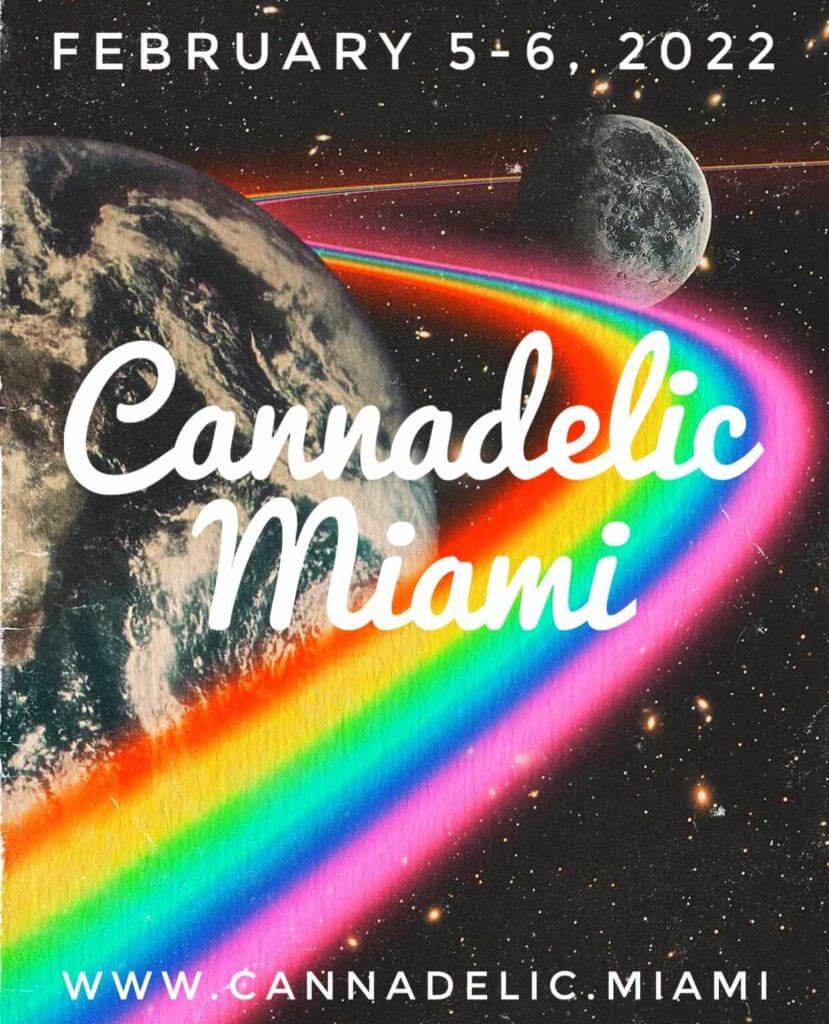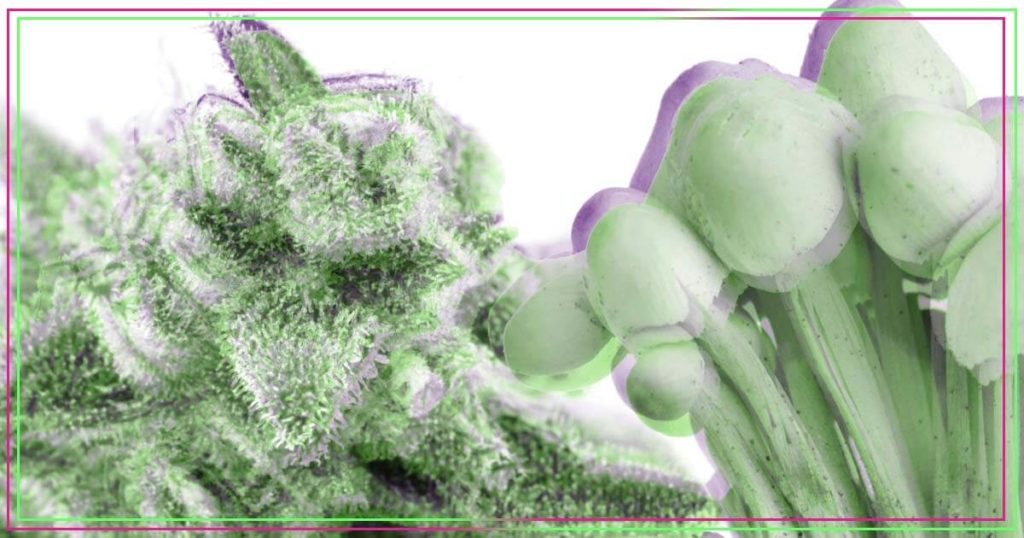A modern psychedelic revolution is underway. Interest in the potential entheogens such as psilocybin, LSD, and DMT have on our society, particularly in the mental health realm, has skyrocketed. Research that lay dormant since the criminalization of the majority of these compounds in the 1960s is enjoying a resurgence, with clinical trials underway around the world already showing remarkable results for people suffering from ailments including PTSD, anxiety, addiction disorders, and depression.
The number of psychedelic businesses has exploded in the last couple of years, as money flows into a hot new sector rife with innovation. In fact, there are now no less than 50 psychedelic corporations trading on various stock exchanges in the United States alone. Valuations are sky-high and investors are bullish on a space projected to be worth over $10 billion in five years’ time.
Do Psychedelics Have Cannabis to Thank?
Many see a stark comparison between the current psychedelic rush with the boom the legal cannabis industry experienced in the mid-2010s, prior to the bubble bursting in 2018. And while cannabis may have helped paved the way for entheogens to re-enter the narrative, the two markets are vastly different in how they will likely play out.
The psychedelic industry is currently operating under a healthcare lens wherein the compounds are administered by medical professionals, often operating alongside therapeutic guides in the experience. Entheogens will be highly regulated and often synthesized in order to effectively treat patients in an efficient, cost-effective manner.
This is a stark contrast to the rich history of psychedelics being used in more spiritual settings. And while some have expressed concern over the corporatization of sacred medicine, it can be argued that it’s the only way to ensure everyone has equal access.
“For your own personal religion, you don’t get healthcare coverage. For medicine, you do,” noted Rick Doblin, founder of the Multidisciplinary Association for Psychedelic Studies (MAPS). “You can have clinical, hospital-based treatments at the same time as religious use.”
The rapid pace at which psychedelics are expanding is also notable, something that can again be partly attributed to cannabis. Stigmas have shifted, and perceptive entrepreneurs are getting in while the getting’s good.
Psychedelic Events Flourishing
The early success of psychedelics is evident not just on Wall Street, but also at the growing number of psychedelic business conferences happening both online and in-person. Events such as Meet Delic in Las Vegas and Microdose Wonderland in Miami attracted several thousand people to their inaugural events in late 2021. Presentations by leading companies showcased recent R&D while stories of healing compelled the throngs of attendees to pack auditoriums, at points reaching standing-room-only status. Exhibitors representing functional mushroom brands and psychedelic media outlets were buzzing (no pun intended).
At the Microdose Wonderland conference, highlights included an update by Cybin, whose CYB003 (a deuterated analog of psilocybin) has shown great efficacy in treating depression. Dr. Deborah Mash, CEO, and co-founder of DemeRx, provided insights into the effectiveness of ibogaine in treating addiction.
But it was former heavyweight boxing champion Mike Tyson who really stole the show. He spoke on the ways in which psychedelics (most notably bufo toad venom) have changed his life for the better after struggles with mental health and multiple concussions.
“Let me be the example,” he said, telling the crowd he has smoked bufo over 60 times over the last few years.
The boxer, who was said to be on psilocybin at the event, met with members of the press after his panel.
“You a lovebug, aren’t you?” Tyson asked me after shaking my hand, noticing a tattoo on my arm that says “listen with your heart, you will understand.”
The upcoming Canna Delic conference in Miami will be among the first hybrid cannabis-psychedelic events, generating a buzz among circles in both industries that already enjoy plenty of overlap. Formerly the Florida Marijuana Expo, Canna Delic aims to help unite the community to usher in the psychedelic renaissance.
Organizer Peter Sessa, President of Florida Cannabis Coalition, saw the need to bring the two together after finding personal success with psychedelic medicine. He realized he was not alone in having a passion for multiple types of plant medicine.
“The timing seems right — we feel this is the type of thing that can save the world from itself,” Sessa said. “So many people in cannabis — growers, edibles makers, extractors — have a psychedelic side and we felt it was important to bring this all together.”
Programming will offer both cannabis and psychedelic-specific content but will also use the time to bridge the gap. A panel titled “What Can the Psychedelics Industry Learn from Legalizing Cannabis?” (featuring Beard Bros’ very own Bill and Jeff along with contributor Catherine Sidman) will focus on the intersections between the two realms, offering insights into how the second coming of plant medicine can avoid the sins committed against the first.
“I’m looking forward to reconnecting with colleagues, clients, and friends at Canna Delic and discussing the critical topics facing both industries,” said Hope Marian, a natural medicine educator who has had personal success with microdosing psilocybin to ease chronic migraines. “The chance to gather this way is really innovative and will hopefully expand my opportunities both professionally and personally as it relates to plant medicine.”
Full Steam Ahead For Psychedelic Space
The psychedelic renaissance is in full swing and it’s only going to get bigger. Utilizing entheogens to improve health and overall quality of life is becoming more commonplace by the day, and while the capitalist overtones may feel unnatural to many psychonauts, it’s important to remember that at the end of the day, it’s not just about profit – it’s about the patients.
“2022 will be the year of integration,” Seesa proclaimed. “This can change a life.”


















